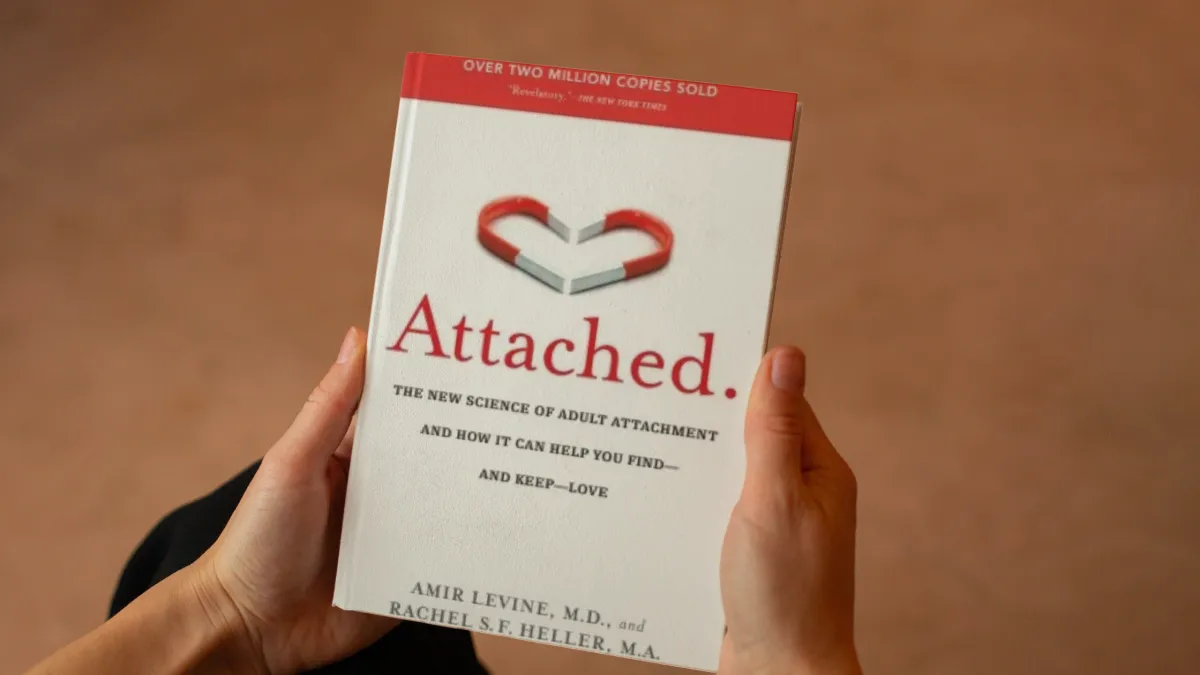Discover Alberta's Premier
Small Businesses
Your Gateway to the Heartbeat of Alberta's Economy
BUSINESS ARTICLES
feature & Industry articles

Book Review: "Attached
Book Review: "Attached: The New Science of Adult Attachment and How It Can Help You Find—and Keep—Love"
"Attached" explores the science of adult attachment and its impact on romantic relationships. The book identifies three main attachment styles: anxious, avoidant, and secure. It delves into how individuals with different attachment styles approach relationships, communicate, and deal with intimacy.
Key Points:
1.Attachment Styles: The authors explain the three primary attachment styles:
Anxious: Individuals who seek a high level of closeness and worry about their partner's availability.
Avoidant: Those who value independence and feel uncomfortable with too much closeness.
Secure: People who are comfortable with intimacy and are generally secure in their relationships.
2.Impact on Relationships:
The book discusses how these attachment styles can influence the dynamics of relationships, including communication patterns, emotional responsiveness, and conflict resolution.
3.Compatibility:
"Attached" suggests that understanding your own attachment style and that of your partner can lead to better communication and improved relationship satisfaction. It emphasizes that matching compatible attachment styles can contribute to a more harmonious and fulfilling relationship.
4. Practical Advice:
The authors provide practical advice on how individuals with different attachment styles can navigate their relationships more effectively. This includes communication strategies and ways to address the challenges associated with varying attachment styles.
5. Therapeutic Insights:
While the book is written for a general audience, it draws on research in psychology and attachment theory. The authors integrate scientific findings with real-life examples and scenarios.
While “Attached" has received praise for shedding light on attachment theory and its application to adult relationships, some critics argue that the book simplifies a complex field. Additionally, there are discussions about the potential for individuals to have a combination of attachment styles in different contexts.
In summary, "Attached" is a valuable resource for individuals seeking insights into relationship dynamics and personal growth. It offers practical advice based on attachment theory and aims to help readers develop healthier and more satisfying connections with their partners.
Written By: Penny Solinger, Registered Social Worker at Emmaus Psychology
Please visit our website to find out more
information: www.emmauspsychology.com

ALBERTA NEWS

Book Review: "Attached
Book Review: "Attached: The New Science of Adult Attachment and How It Can Help You Find—and Keep—Love"
"Attached" explores the science of adult attachment and its impact on romantic relationships. The book identifies three main attachment styles: anxious, avoidant, and secure. It delves into how individuals with different attachment styles approach relationships, communicate, and deal with intimacy.
Key Points:
1.Attachment Styles: The authors explain the three primary attachment styles:
Anxious: Individuals who seek a high level of closeness and worry about their partner's availability.
Avoidant: Those who value independence and feel uncomfortable with too much closeness.
Secure: People who are comfortable with intimacy and are generally secure in their relationships.
2.Impact on Relationships:
The book discusses how these attachment styles can influence the dynamics of relationships, including communication patterns, emotional responsiveness, and conflict resolution.
3.Compatibility:
"Attached" suggests that understanding your own attachment style and that of your partner can lead to better communication and improved relationship satisfaction. It emphasizes that matching compatible attachment styles can contribute to a more harmonious and fulfilling relationship.
4. Practical Advice:
The authors provide practical advice on how individuals with different attachment styles can navigate their relationships more effectively. This includes communication strategies and ways to address the challenges associated with varying attachment styles.
5. Therapeutic Insights:
While the book is written for a general audience, it draws on research in psychology and attachment theory. The authors integrate scientific findings with real-life examples and scenarios.
While “Attached" has received praise for shedding light on attachment theory and its application to adult relationships, some critics argue that the book simplifies a complex field. Additionally, there are discussions about the potential for individuals to have a combination of attachment styles in different contexts.
In summary, "Attached" is a valuable resource for individuals seeking insights into relationship dynamics and personal growth. It offers practical advice based on attachment theory and aims to help readers develop healthier and more satisfying connections with their partners.
Written By: Penny Solinger, Registered Social Worker at Emmaus Psychology
Please visit our website to find out more
information: www.emmauspsychology.com
ALBERTA NEWS

Book Review: "Attached
Book Review: "Attached: The New Science of Adult Attachment and How It Can Help You Find—and Keep—Love"
"Attached" explores the science of adult attachment and its impact on romantic relationships. The book identifies three main attachment styles: anxious, avoidant, and secure. It delves into how individuals with different attachment styles approach relationships, communicate, and deal with intimacy.
Key Points:
1.Attachment Styles: The authors explain the three primary attachment styles:
Anxious: Individuals who seek a high level of closeness and worry about their partner's availability.
Avoidant: Those who value independence and feel uncomfortable with too much closeness.
Secure: People who are comfortable with intimacy and are generally secure in their relationships.
2.Impact on Relationships:
The book discusses how these attachment styles can influence the dynamics of relationships, including communication patterns, emotional responsiveness, and conflict resolution.
3.Compatibility:
"Attached" suggests that understanding your own attachment style and that of your partner can lead to better communication and improved relationship satisfaction. It emphasizes that matching compatible attachment styles can contribute to a more harmonious and fulfilling relationship.
4. Practical Advice:
The authors provide practical advice on how individuals with different attachment styles can navigate their relationships more effectively. This includes communication strategies and ways to address the challenges associated with varying attachment styles.
5. Therapeutic Insights:
While the book is written for a general audience, it draws on research in psychology and attachment theory. The authors integrate scientific findings with real-life examples and scenarios.
While “Attached" has received praise for shedding light on attachment theory and its application to adult relationships, some critics argue that the book simplifies a complex field. Additionally, there are discussions about the potential for individuals to have a combination of attachment styles in different contexts.
In summary, "Attached" is a valuable resource for individuals seeking insights into relationship dynamics and personal growth. It offers practical advice based on attachment theory and aims to help readers develop healthier and more satisfying connections with their partners.
Written By: Penny Solinger, Registered Social Worker at Emmaus Psychology
Please visit our website to find out more
information: www.emmauspsychology.com
© 2024 Best of Alberta - All Rights Reserved | Business Benefits Finder | Business Council Of Alberta | Starting a Business


